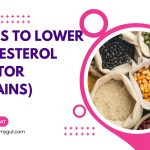The 3 Main Reasons Why Your Hiccups Hurt (And the Best Treatments).
Our content is not intended nor recommended as a substitute for medical advice by your doctor. Use for informational purposes only.
We still don’t know the exact purpose or benefit of hiccups. However, during hiccups, two main events occur:
- Sudden spasmodic contractions of the muscles of inspiration (the diaphragm and the intercostal muscles).
- The spasmodic contraction is interrupted by a sudden closure of the epiglottis preventing air from entering your trachea.
Generally, hiccups are short-living and self-limiting within seconds or minutes. Rarely, they become frequent or prolonged and may hurt you. The pain resulting from hiccups can be due to:
- Frequent muscle spasms.
- Muscle strain.
- Triggering of acid reflux.
Keep reading for more details.
A. Whey do hiccups hurt?
1. Frequent Muscle spasms.
Most of the time, hiccups last for a few minutes and don’t cause harm. However, if hiccups become prolonged or very frequent, they will hurt your muscle.
The muscles involved in the hiccup reflex start to suffer as hiccups continue. Sore muscles (the diaphragm and the intercostal chest muscles) are the leading cause.
Repetitive muscle spasms of the diaphragm and the intercostal muscles lead to a build-up of the toxic metabolites inside these muscles.
Moreover, the forceful, repetitive contractions lead to invisible microscopic damage of the cells forming the muscle fibers (reference).
The most toxic metabolite that causes sore muscle during hiccups is lactic acid.
2. Muscle strain.
Muscle strain (also called pulled muscle) occurs when a muscle is overstretched or torn. Severe or forcible hiccups can result in a strain in the diaphragm or the intercostal muscles.
The hallmark of muscle strain is the continuous pain after hiccups.
Symptoms:
- Discomfort or pain during breathing in and out.
- Stitching pain in the side of your chest with movement or respiration.
- Inability to take a full breath.
- Pain while bending or moving.
3. Acid reflux (leads to heartburn and sore throat).
Hiccups may cause burning pain in the chest and the upper stomach area. This is because hiccups trigger the reflux of your stomach contents into the chest.
Hiccups create an intense negative pressure inside the chest, which triggers the reflux of stomach acid into the chest (esophagus).
This acid reflux with hiccups is more prominent in people who already have GERD (gastroesophageal reflux disease) and hiatal hernia. However, hiccups can also trigger acid reflux in healthy people (without GERD or hiatal hernia).
B. How to treat painful hiccups?
1. Techniques to stop hiccups.
Method | Explanation. |
| 1. Breath Holding | Hold your breath for ten or more seconds (or as long as you can). |
| 2. Valsalva Maneuver | – Pinch your nose closed and close your mouth. – Forcefully exhale with mouth closed. – Bear down (similar to having a bowel movement). – Hold this exhalation/Bearing down for 10-15 seconds. |
| 3. Coldwater. | Either sipping on or gurgling with freezing water. |
| 4. Lemon. | – Bitting into a lemon. |
| 5. Tongue Pulling. | – Pull your tongue out with your fingers (stimulates the vagus nerve). |
| 6. Pressing on eyeballs. | – Close your eyes. – Make your eyeballs look downwards while closed. – Press gently but firmly on your eyeball (over the upper eyelid). |
| 7. Knee-chest Position. | – Sit on a chair or a couch. – Either pull your knees up to the chest OR lean forward to compress your chest with your things). – Hold this position for at least 30 seconds to one minute. |
| 8. FISST (forced inspiratochestction and swallow tool) | sing a specialized tool (FISST or hiccup-relieving apparatus). – A specialized tube with a valve is used to suck water (requires significant effort). – Then, Swallowing of the water sucked from the tube. – Note: Sucking stimulates the (phrenic nerve), while swallowing stimulates the (vagus nerve). Both help the termination of hiccups. |
The above table explains the non-pharmacological methods to stop hiccups. However, prolonged hiccups (especially if continuous for more than 48 hours) need prescription medication to control the condition. Learn More.
2. Treatment of muscle soreness.
You can use the following tips:
- Rest.
- Practice slow deep inspiration and expiration (to stretch the sore muscles).
- OTC creams and gels (such as IcyHot and Aspercreme) that contain menthol or capsaicin can ease muscle soreness.
- Also, topical analgesics may be effective.
- Ask your doctor about an oral analgesic for muscle soreness, such as ibuprofen, if the pain is prolonged.
- It is better to avoid cold or hot foments
C. FAQs (Frequently-Asked Questions) about painful hiccups.
1. Is it supposed to hurt every time you hiccups?
Hiccups are often short-living and self-limiting. Typically, they don’t hurt or cause pain. However, hiccups can cause pain if they become prolonged or severe. The pain is often due to soreness of the muscles responsible for the hiccups reflex.
2. Why do hiccups hurt my throat?
Hiccups hurt your throat by two mechanisms. First, by the sudden forcible closure of the epiglottis. Second, hiccups trigger acid reflux into the esophagus, which can reach your throat and cause acid reflux pain.
3. Why do hiccups hurt my stomach?
Hiccups can hurt your stomach (abdomen) when they become frequent or prolonged. Severe hiccups cause muscle pain (soreness) in the diaphragm, intercostal and abdominal muscles. Also, hiccups may exacerbate acid reflux and hiatal hernia; both conditions cause stomach pain.
4. Why do hiccups hurt my back?
Hiccups can affect your back when prolonged or severe (violent). The leading cause of back pain is often the muscle spasms or strains of the intercostal muscles at the back of the diaphragm.
5. why hiccups hurt my ribs?
Hiccups can hurt your intercostal muscles by causing painful muscle cramps or even muscle strain. For example, you will fail as your ribs are hurting you, but the muscles cause the pain.
- Evidence-based
- Written by a doctor.











